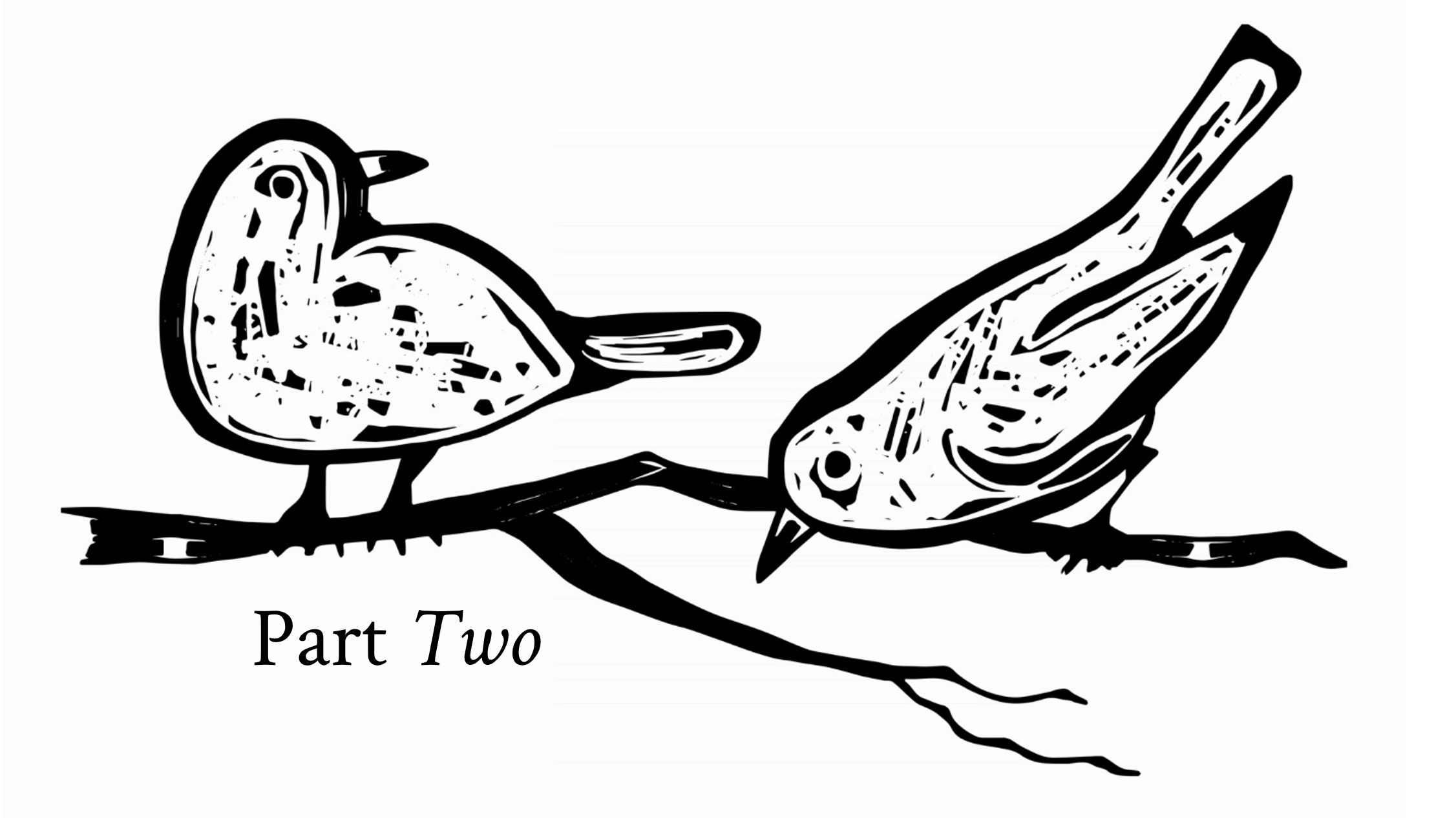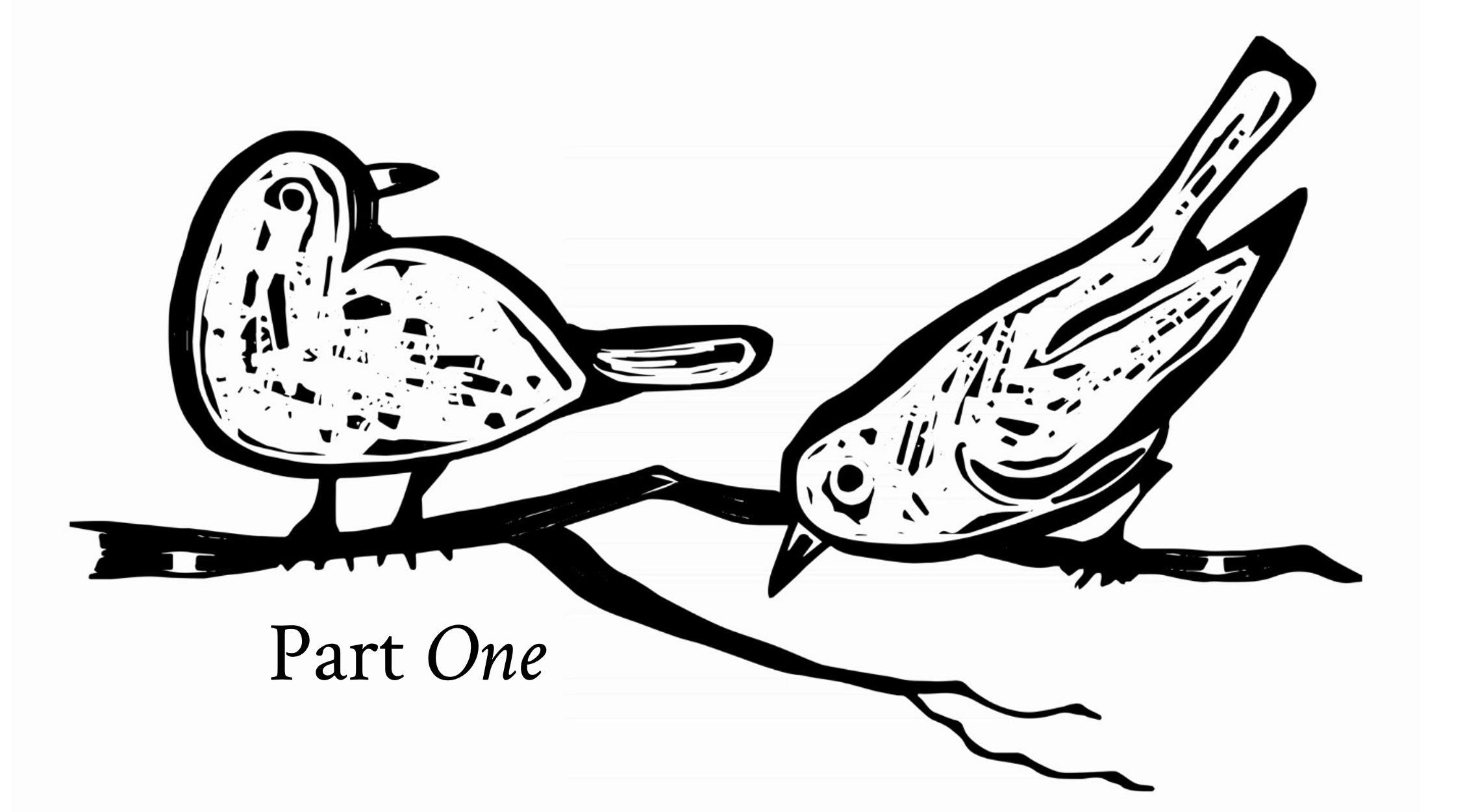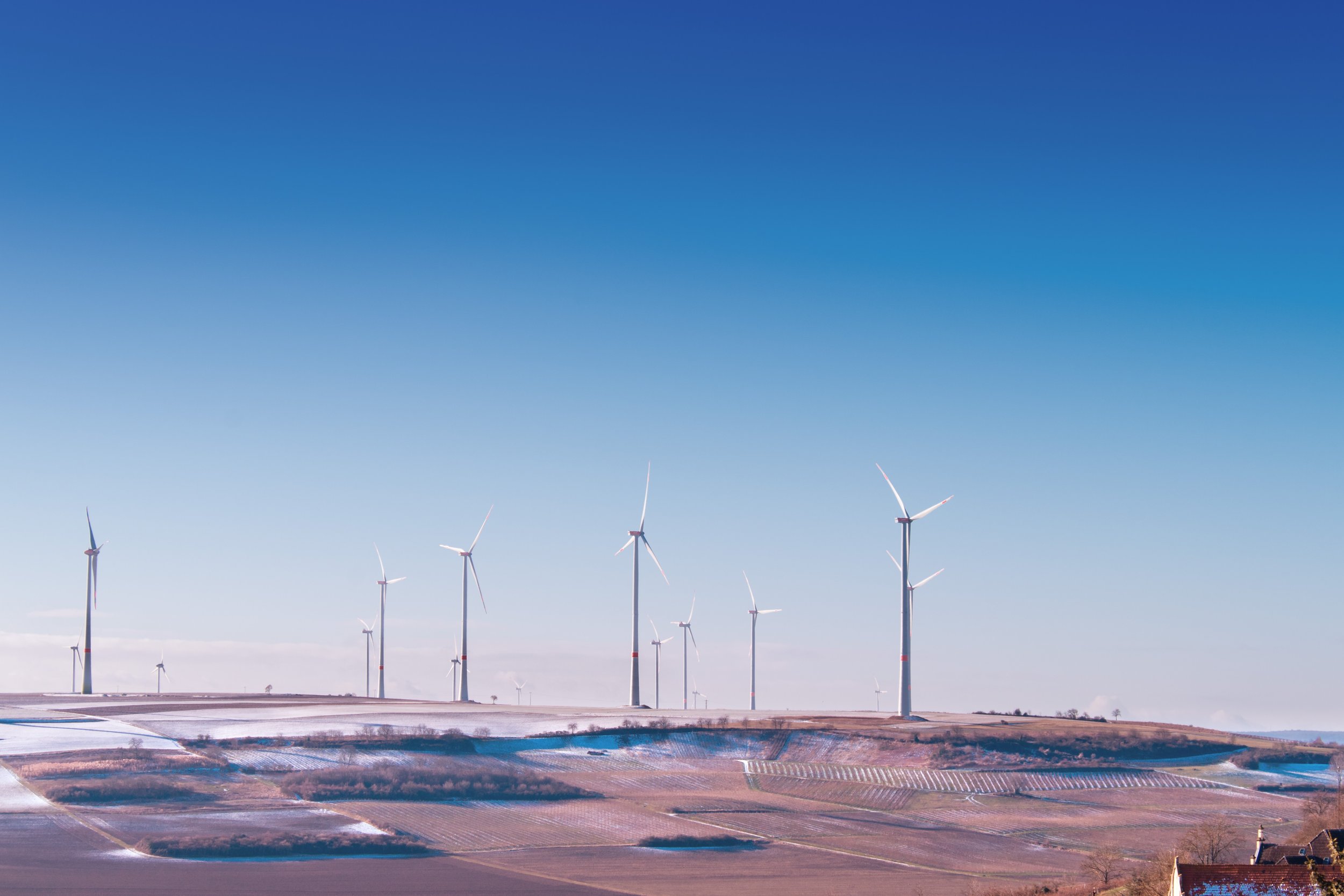Overview
OBI in Nonprofit Quarterly: Forging a Progressive Response to Fragmentation
How can social justice movements address the threats posed by democratic degradation and populist authoritarianism while advancing their longer-term goals? How can they reorient their work towards an ethos of defragmentation, bridging, and democratic renewal? It is to these questions that we turn.
Anna Szilágyi on how words can counter othering and promote belonging
“Words can lure groups and communities into dangerous and destructive ideologies, turning them into ardent supporters of disastrous deeds and policies. However, language can also serve as a bridge that unites people and fosters healing on a collective level.”
Diving into Migration's 'Narrative Ocean'
It is my belief that in no other domain – and I will admit that having worked in this space I may be slightly biased – do we see the power of narrative oceans more strongly than in migration. Unfortunately, the loudest stories that dominate the migration narrative ocean share a thread of othering and dehumanization.
In Conversation: Bayo Akomolafe on “Black Lives Matter: But to whom?”
“‘I’ wrote this essay with an eye of Black geographies, haunted outdoors, the hidden public that subsidizes the obvious. From within that space, there is - in my opinion - a groundswell of impulses and movements gesturing towards the more-than-just. Gesturing towards 'breaks' of some kind. This essay is an attempt to trace those wandering yearnings for another sun.”
NEW ESSAY: Black Lives Matter: But to Whom?
We're thrilled to share an extraordinary new work from our Global Senior Fellow Bayo Akomolafe. In many ways, Bayo's piece defies any simple description or summary, but at its most basic, this two-part essay seeks to explore the limits of the Black Lives Matter frame in advancing justice and the possibility for reimagining identities altogether.
Black lives matter, But to whom? Why We Need a Politics of Exile in a Time of Troubling Stuckness (Part II)
If you fashion your emancipation using the materials of your oppression, using the same epistemological frameworks of your incarceration, you risk reinforcing your oppression.
It may be reassuring to the justice-seeking efforts of BLM to imagine that the thrust of politics is to overwhelm the racists, to educate them out of their hatred, to address systematic oppression so that Black individuals might thrive, but the individual, the traditionalist human subject, is already a form of genocide. This genocide is not some distant event in the past, but an ongoing reproduction of the ‘world’ as ‘clearing’ – a cutting off the ways we are imbricated with ecological matterings that coincides with the killing fields of industrial gentrification and with the asylum captivity that is named, ‘the Human’. […]
Black lives matter, But to whom? Why We Need a Politics of Exile in a Time of Troubling Stuckness (Part I)
Four days away from the Christmas of 1848, in the dark and occult hours before morning wakes, Ellen and William Craft beheld each other through tearful eyes for the last time. Minutes later, they collapsed to the floor, both falling into a writhing heap of limbs and agony, convulsing, trembling, and flailing until the strong brew they had ingested hours earlier passed through them. When the sun yawned awake to the sounds of the cock crow, his surveillant gaze travelled across the undulating fields of Georgia, across the cottonfields of one plantation in Macon, and fell through the cracks of the cabin where two lovers had spent their last human moments, and where a few obsidian-black feathers belonging to two fugitive crows now littered the log floor – tell-tale signs of a daring escape, a transformation too offensive for history to embrace.
But they were not the first to turn, you see. […]
Beyond Binaries: lessons on authoritarian populism and democracy I'm taking into 2023
“When it comes to far right authoritarian populists, who are the focus of my own research, I would argue there are at least three things (although not the only ones) that the last few years have taught us about their workings: […]”
Mamobo Ogoro on effective bridging in the digital age
“While facilitated direct in-person experiences are best, intergroup contact can be achieved indirectly through storytelling & education. That’s where Gorm Media comes in. We are a platform on a mission of unity across lines of difference and we share stories, educate and create engaging content of people from diverse communities and conversations of people bridging on social issues.”
Linking climate and migration: An emergent playbook from Europe’s Far-Right
2022 is drawing to a close. It has been – suffice it to say – an eventful year. And one would be remiss to make any predictions as to what 2023 will bring about. ‘Rising prices,’ ‘inflation,’ and ‘the cost of living’ are at the top of Europeans’ concerns. ‘Immigration’ and ‘the environment and climate change’ follow suit as top issues. Climate has been escalating the ladder of concerns, while immigration is no longer as prominent as it used to be yet remains relatively high (albeit never the highest concern).
The current situation of polycrisis, compounded by the consequences of a lingering pandemic, leave us with a social and political landscape that is volatile and exploitable. But while the far-right’s playbook is clear when it comes to migration, it is far less so when it comes to climate
Luca Gervasoni i Vila on advancing belonging through nonviolent action
“Nonviolence is usually studied as a philosophy or moral code, rather than as a method of political conflict, disruption, and escalation. I realized how important it was to correct this gap. Drawing from discussions with activists working to defend human rights, challenging corporate corruption, or combating authoritarianism, it was evident that people with few resources and little influence in conventional politics can nevertheless engineer momentous upheavals.”
Greenwashing, Sportswashing, and Who is Deemed Worthy of Sacrifice
This year, in the span of just a few months, two major international events are taking place that seem to hold little in common: The UN Climate Change Conference of Parties (COP) and the FIFA World Cup. Indeed, while most of the public does not follow climate politics and has little knowledge of COPs, the World Cup gathers the attention of millions. COPs involve political leaders, lobbyists, and activists, while the World Cup involves footballers and fans.
And yet, there is at least one clear similarity between them: they both illustrate how powerful institutions, including governments and private organizations, deem some groups worthy of protection, and others, sacrifice.
On the Banality of Evil: Whitewashing Authoritarian Populists
[…] Far-right leader of Fratelli d’Italia (Brothers of Italy), Giorgia Meloni, has now become the first female Prime Minister of Italy.
There is absolutely nothing surprising about Viktor Orbán, of Hungary (officially considered an electoral autocracy now), congratulating Giorgia Meloni’s access to power. Or in the far-right Vox of Spain joining in the celebrations.
But it was Ursula Von Der Leyen’s tweets that reminded me of Hannah Arendt’s book and her writing on totalitarianism. To be clear: I am not saying that we can equate today’s rise of the far-right with the history of Nazism, but have we turned a corner in the whitewashing and mainstreaming of authoritarian populists in Europe?
The far-right and belonging in Italy and the EU
Yet in most of the coverage pre- and post- election, the focus has not been on what the impacts of a Meloni-led government in Italy (Europe’s third largest economy) would be on these communities she rages against (migrants, LGBTQ+ people, foreigners, etc), but rather on the economic and foreign policy implications of her leadership. It seems that once more, attention is not on those who are most othered but on those who hold power. Some have even gone as far as to say that a strong Meloni would be preferable for the stability of the eurozone than her party having to rely on volatile allies like Salvini and Berlusconi This piece in Foreign Affairs goes so far as to argue that “America and the EU Should Root for a Far-Right Populist. Who cares about human rights for those within the country?
Energy, Crisis, Future
At record high levels of inflation and with a persistent cost of living crisis, European leaders are making decisions that will shape the future of the union while also — perhaps unknowingly — setting the tone of how negotiations and life is conducted in the continent. Is it going to be a Europe of cooperation or of competition? Is it going to be an inclusive or exclusionary union? Is it going to be a Europe responding reactively to a security, economic, and social crisis, or one that is proactively shaping a climate-conscious future?
Global Senior Fellow Bayo Akomolafe on slowing down, embracing complexity, and finding hope in a time of multidimensional breakdown
“Hope is not always a choice we can make. Sometimes things get so crippling that we find a strange glimmer of emancipation in the darkness of the moment. I suppose that little glimmer, that crack, is the trickster reminding us that not even loss can be fully itself. Nothing can be fully itself, nothing can belong, without the strange other hiding among the ranks, squeezing itself between the lines, the devil in the details. Not a slave ship bound for the Americas. Not a pandemic threatening destruction. Not a climate crisis with no end in sight. Not death. Something always steals in. Maybe there is a powerful political move there. Maybe there is a way of sitting with the trouble and inadequacy of hope. Maybe there is hope in the hopeless. “
An Introduction and an Invitation
I vaguely remember the moment I decided I was going to get lost. Generously lost.
I had just read yet another article about the mental health crisis gripping the largest black nation on earth. Nigeria had 200 million people and – conservatively – three well-equipped psychiatric hospitals. The papers bemoaned a poorly articulated health policy, a lack of skilled staff, a dearth of bedspaces, and tight budgets. They begged for a compassionate government or sensible philanthropy. It was 2008. But that didn’t matter: the problem was a sticky one, as resilient as our claims to peoplehood.
The trend for doctoral researchers like myself was to lean into these problems, vacillate between exhausted data points, and tie up our theoretical conclusions to the same ‘solutions’ everyone else had already figured out: we needed more money to take care of our people. But solutions are often products of fields of resonance, marking the ways we have been trained to reproduce sounds and images with which we are already familiar. The trick is in learning to listen to the noise.
Introducing our inaugural Global Senior Fellow, philosopher Báyò Akómoláfé
We are proud to announce that author, poet, and public intellectual Bayo Akomolafe has joined the Democracy & Belonging Forum as its inaugural Global Senior Fellow. In this role, Bayo will act as the Forum’s “provocateur in residence”, guiding Forum members in rethinking and reimagining our collective work towards justice in ways that reject binary thinking and easy answers.
Artist and facilitator Alaa Alsaraji on Mapping Sanctuaries within the British Muslim community
“Another participant talked about their mother’s living room as an example of a sanctuary space built on fostering connection. It was there they were able to observe their mother and her friends show their true selves, which is often extremely different from who they had to be while out in public, especially as an elderly Muslim wearing a Hijab. In those living rooms, when the mothers come together with one another, they would go wild in a way that no one would believe. The shisha comes out. The music comes on. It’s beautiful to see.”
Slowness Sets In, Migration Goes On
In August, the energy in European cities shifts. Walking down the streets in which locals usually walk or run, be it to work, to pick up children, to classes, the sensation is one of slowness, a lull, rush replaced by meandering. The idea of August as a month of rest is deeply embedded in the European conscience: it is a month to recharge, spend time with loved ones, travel. According to some statistics, more than half of Europeans will go on holiday this month. At the same time, for those in the tourism industry, the pace picks up, as European cities and shores are flooded with tourists that find this continent an attractive destination.
This approach to rest, travel, and relationships is - in my opinion - one of the beauties of life in this continent. But it is also a reminder of the disparities that come with being a European passport holder.




















